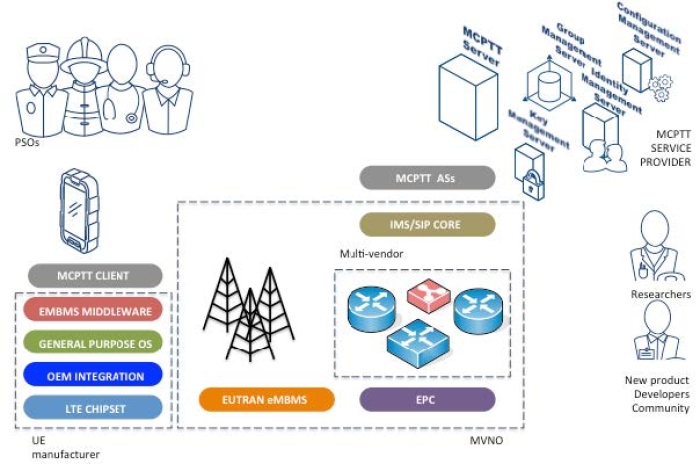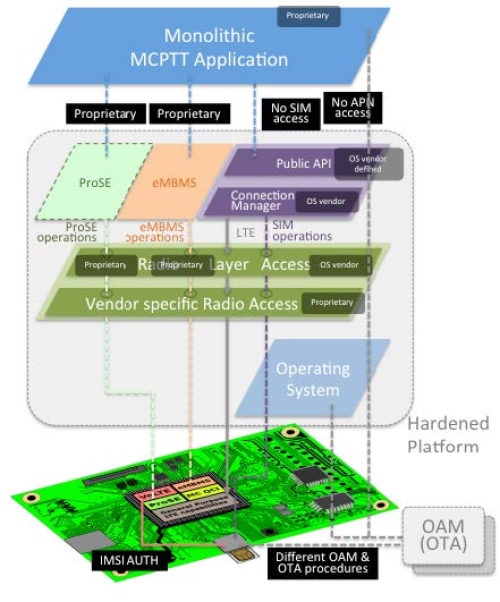The primary problems that this MCOP proposal addresses are derived from the current MCPTT ecosystem situation and can be summarized as:
The resulting overall system is complex not only in terms of the different technologies involved but of the number and often conflicting interests of hardware and network equipment vendors and service providers required for deploying, testing or researching a whole e2e solution.
Therefore, although the open/standardized system goal was successfully achieved, researchers, new products developers, integrators and even the PSOs themselves currently face interoperability problems and entry barriers rather similar to those in previous systems.

This situation is particularly relevant in the UE for two different reasons: On one hand, a rich and PS tailored application landscape was one of the key drivers for the evolution from LMR to enhanced general purpose broadband technologies such as LTE and VoIP. On the other, unlike network or MCPTT signaling levels in the core network and server sides, there are several internal interfaces in the UEs in terms of SW modules and APIs that have not been normalized.
As a result, the open ecosystem paradigm that has fostered innovation to unprecedented levels in the Internet world cannot be mimicked in PS ecosystems. On the contrary, tentative PS APPs developers have no chances to test or even develop their solution in a realistic way without the assistance of several different big stakeholders and building complex and expensive testbeds.
MCOP aims to address the different challenges derived from the current initial situations.


